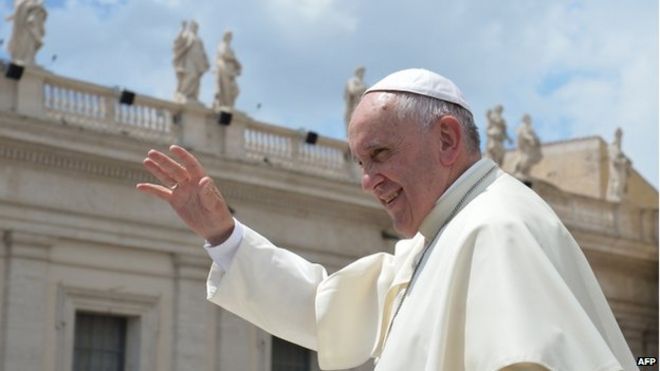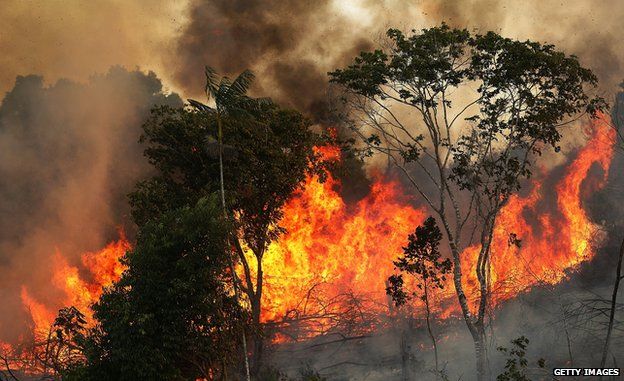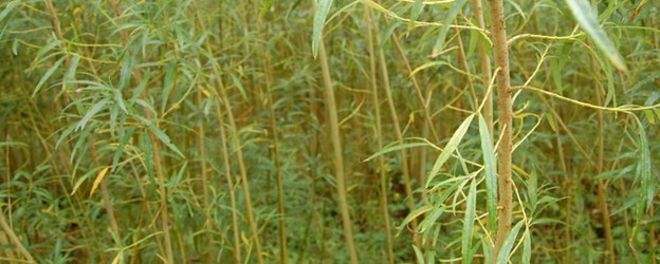Pope Francis has blamed human selfishness for global warming in his long-awaited encyclical calling for action on climate change.

The Pope calls for a radical change in behaviour to save the planet for future generations
In the letter, he urges the rich to change their lifestyles to avert the destruction of the ecosystem.
Environmentalists hope the message will spur on nations ahead of the UN climate conference in Paris in December.
But parts of the document, leaked earlier this week, have already been criticised by some US conservatives.
It has been dismissed by two Republican presidential candidates.
Humans to blame
The encyclical, named "Laudato Si (Be Praised), On the Care of Our Common Home", aims to inspire everyone - not just Roman Catholics - to protect the Earth.
The 192-page letter, which is the highest level teaching document a pope can issue, lays much of the blame for global warming on human activities.
Pope Francis writes that: "We have come to see ourselves as her lords and masters, entitled to plunder her at will.
"The violence present in our hearts, wounded by sin, is also reflected in the symptoms of sickness evident in the soil, in the water, in the air and in all forms of life."

The letter highlights the loss of biodiversity in Amazonian rainforests and the melting of polar glaciers
He criticises what he calls a "collective selfishness", but says that there is still time to stop the damage, calling for an end to consumerism and greed.
'Moral approach'
Vatican spokesman Federico Lombardi launched the pontiff's second encyclical at a news conference on Thursday.
The teaching is more evidence of a pontiff determined to act as a catalyst for change, and a powerful diplomatic player on the world stage, says the BBC's religious affairs correspondent Caroline Wyatt.
The release comes six months before international leaders gather in Paris to try to seal a deal to reduce carbon emissions.
UN Secretary-General Ban Ki-moon welcomed the document, saying climate change was a "moral issue requiring respectful dialogue with all parts of society".


